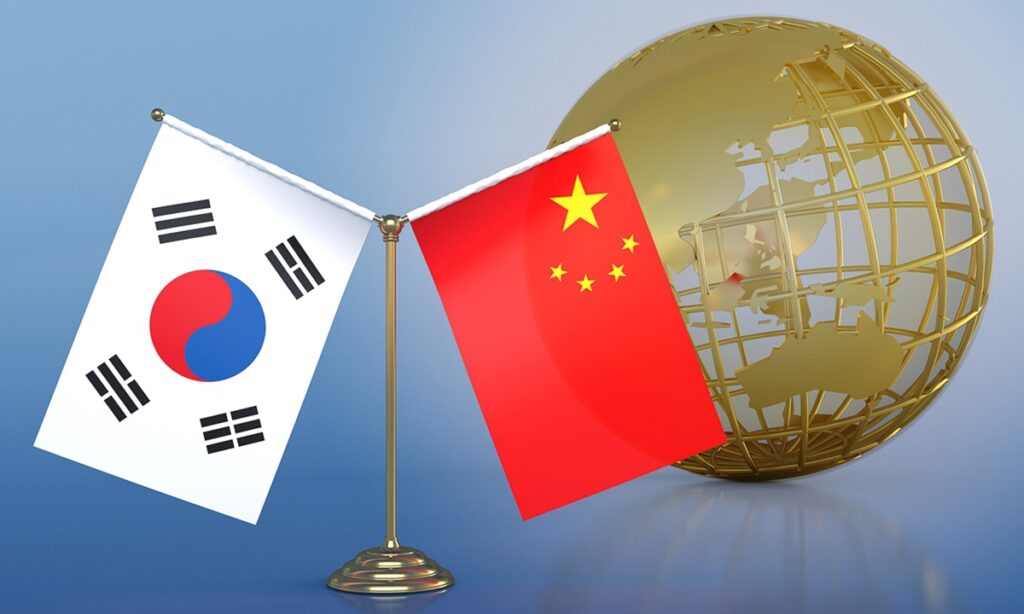Chinese Ambassador to South Korea Xing Haiming’s recent meeting with Lee Jae-myung, leader of South Korea’s main opposition Democratic Party, was a normal diplomatic activity and beyond reproach, said Chinese experts in response to inappropriate reactions from South Korea to the meeting on Sunday.
Chinese experts believe that Seoul overreacted, and at the same time pointed out that its real purpose is to deliberately incite anti-China sentiment among South Koreans and achieve the purpose of suppressing progressives in the country.
Chinese Assistant Foreign Minister Nong Rong met South Korean Ambassador to China Chung Jae-ho on Saturday to raise serious concerns and express dissatisfaction regarding South Korea’s inappropriate reaction.
Nong elaborated on China’s views and position on the current China-South Korea relationship, emphasizing that it is within the Chinese ambassador’s responsibilities to engage in extensive contact and exchanges with various sectors of South Korean society. The purpose of these interactions is to enhance understanding, promote cooperation and promote the development of China-South Korea relations.
Xing held a meeting on Thursday with Lee Jae-myung, leader of South Korea’s Democratic Party, according to the Yonhap News Agency. During the meeting, Xing stressed that the current bilateral relations face considerable difficulties, but that the responsibility does not lie with China.
The ruling People Power Party of South Korea later criticized Xing’s remarks. South Korean First Vice Foreign Minister Chang Ho-jin called in Xing on Friday to issue a protest, saying comments made by the Chinese envoy were “unreasonable and provocative” and a possible interference in internal affairs, according to Yonhap News Agency.
Chinese Foreign Ministry Spokesperson Wang Wenbin said on Friday that the current difficulties and challenges in China-South Korea relations were not caused by China. Relevant parties in South Korea should put this into perspective and focus on how to handle problems and realize the stability and growth of China-South Korea relations, Wang noted.
Lü Chao, an expert on Korean Peninsula issues at the Liaoning Academy of Social Sciences, told the Global Times on Sunday that he believes the meeting between the Chinese envoy and the South Korean politician was a normal diplomatic activity that was beyond reproach, and some accusations made by South Korea, particularly by certain media outlets, were unreasonable.
“What Ambassador Xing said were completely objective facts, and he made his remarks from the standpoint of safeguarding the common interests of the Chinese and South Korean people,” the expert noted.
Seoul has recently been provoking China and making baseless claims regarding the Taiwan question, while in economic and trade cooperation, including high-tech fields, they have been following the instructions of the US and repeatedly distanced themselves from China.
These actions have indeed affected the common interests of the people from both China and South Korea.
Under such circumstances, it was highly timely and necessary for Ambassador Xing to point out the facts, and to expect senior politicians in South Korea to refrain from further distancing the people of both countries, Lü said.
As a country that is heavily reliant on foreign trade, South Korea’s trade volume is primarily dependent on its largest trading partner, China. South Korea does not have any reason to engage in a “decoupling” with China and completely tie itself to the US, and adopting a hostile stance toward China in political, diplomatic and even military aspects, which is considered highly irrational and unwise, Lü said.
“It was completely out of good intentions for Ambassador Xing to point out certain inappropriate remarks and tendencies in South Korea’s current diplomatic discourse,” Lü said, quoting a proverb: “Advice most needed is least heeded.”
Another Chinese expert who requested anonymity told the Global Times on Sunday that the summoning of Ambassador Xing and the statements made by certain members of the ruling party in South Korea, which may appear to be an overreaction, exposed their real purpose, which is to deliberately incite anti-China sentiment among South Koreans, and then achieve the purpose of suppressing progressives in South Korea.
(Global Times)




